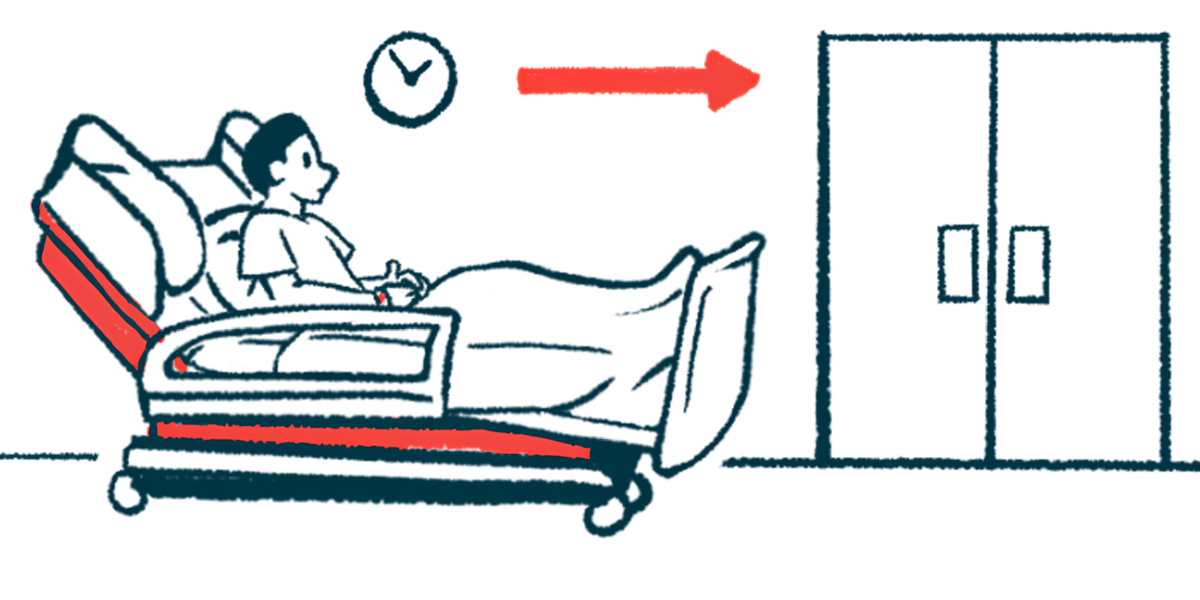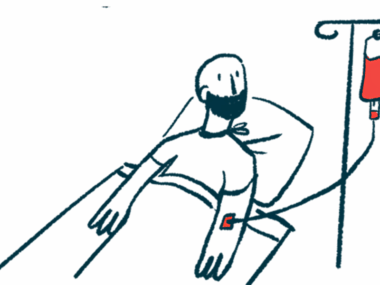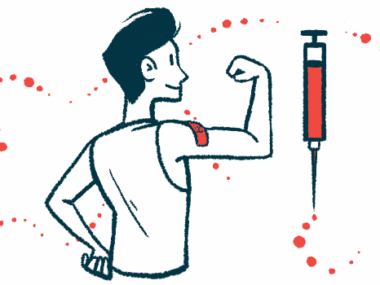Rituximab offers long-term relief for women with MuSK-MG
90% of patients saw symptom relief after a month of treatment
Written by |

Rituximab may be safe and effective in treating women with myasthenia gravis (MG) that’s driven by antibodies that target muscle-specific tyrosine kinase (MuSK), an analysis of patients at a single center in China shows.
Significant symptom relief was seen by 90% of patients after a month of treatment and it was accompanied by a marked reduction in the daily dose of corticosteroids.
“In patients with MuSK-MG, low-dose [rituximab] may be associated with long-term and sustained clinical improvement,” the study’s researchers wrote. The study, “A pilot study of the immunological profile an efficacy of rituximab in muscle-specific kinase antibodypositive myasthenia gravis” was published in Frontiers in Immunology.
MG is caused by self-reactive antibodies that target proteins important for nerve-muscle communication. About 80% of MG patients have antibodies that target acetylcholine receptors (AChR) on muscle cells, while in 1%-10% of patients, they target the MuSK protein.
The disease manifests differently according to the type of antibody a person has. MuSK-driven MG typically affects adults, particularly women, with frequent acute bulbar symptoms — that is, problems chewing, swallowing, and breathing — and muscle weakness.
With MuSK-MG, current treatment approaches such as acetylcholinesterase inhibitors and corticosteroids show limited effectiveness, and/or lead to adverse effects and complications.
Recent research supports using rituximab for MuSK-MG when other first-line therapies fail, and that MuSK-MG patients treated with rituximab have fewer symptoms and lower relapse rates.
Sold as Rituxan and with biosimilars available, rituximab is an antibody-based therapy that’s designed to target and reduce the number of the immune cells known as B-cells that produce antibodies, including the ones that drive MG. Initially intended to treat B-cell cancers, rituximab has increasingly been used off-label to manage autoimmune diseases like MG that are driven by B-cells.
Studying rituximab in MuSK-MG
Here, physicians in China conducted a retrospective analysis of clinical data from 20 women followed at their hospital to further understand the unique features of MuSK-MG and assess rituximab’s efficacy in these patients over those with AChR-MG. The analysis included 10 women with MuSK-MG and 10 of a similar age with new-onset AChR-MG. The patients were a mean age of 44.3 at the time of their disease onset, and were followed at the researchers’ hospital between July 2021 and February 2024. Before receiving rituximab, most MuSK-MG patients (80%) were treated with pyridostigmine (sold as Mestinon) and prednisone.
Symptoms at the time of MuSK-MG onset included weakness in the muscles of the face and neck, called bulbar muscle weakness (90%), eyes and eyelids, or ocular muscle weakness (70%), and limbs (80%). There was respiratory involvement in 40% of the patients. While all the evaluable MuSK-MG patients showed bulbar muscle weakness at their disease onset, this was observed in only 50% of those with AChR-MG, a statistically significant difference.
Scores in scales that assess MG’s impact on daily function (MG Activities of Daily Living, or MG-ADL) and muscle strength (Quantitative MG, or QMG) were significantly were higher in MuSK patients, indicating more severe disease.
After a month of rituximab, 90% of MuSK-MG patients saw clinically meaningful improvements, defined by a minimum reduction of 2 points in the MG-ADL score. The mean MG-ADL score was significantly reduced from 8.7 to 3.6 points, while the mean QMG score dropped from 13.3 to 6.1 points.
These improvements continued over 24 months, with all the patients achieving clinically meaningful reductions in disease severity. Stratification according to clinical severity showed that the proportion of patients with severe symptoms (defined as an MG-ADL score greater than 10) significantly declined from 40% at the study’ start (baseline) to 0% after a month of treatment.
Rituximab also led to reductions in daily corticosteroid dosages. After a month, the median prednisone dose significantly decreased from 40 to 25 mg/day, and to 2.5 mg/day after six months. By the last follow-up, 89% of patients had successfully discontinued steroids altogether.
There were no reports of infections or allergic reactions.
“Our findings add to the increasing evidence supporting the use of [rituximab] in MuSK-MG and lay a foundation for future research aimed at optimizing treatment strategies and enhancing patient outcomes,” the researchers wrote.




Leave a comment
Fill in the required fields to post. Your email address will not be published.